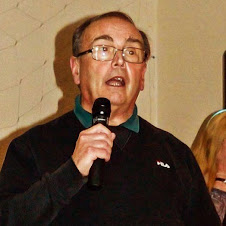Charlie Hebdo, the magazine, belongs to a tradition unique to France. I am no authority on French history, but I know that before the French Revolution in 1789, there were numerous magazines and pamphlets circulating in Paris, making what can only be described as scurrilous and pornographic attacks on the Monarchy and the Church. Some historians regard these publications as one of the main contributory causes of the revolution, and their influence could be discerned after the downfall of the Ancien Regime, in Jean-Paul Marat's newspaper, "L'Ami Du Peuple" and the accusations of incest made against Marie-Antoinette at her trial. Charlie Hebdo clearly follows in this anti-establishment, anti-clerical tradition, and is intent on continuing this irreverent and offensive practice, despite last week's horrific massacre.
I mention all this because this exclusively French angle on the free speech debate that now rages has been overlooked. It is very difficult to make an original contribution to this debate, but, if a solution to this whole issue of free speech, satire and religion is to be found, I think it is to be found in France, in the best tradition of the Revolution of 1789.
But that is to come. To begin with, Muslims in Europe (i.e. Western Europe) clearly are unhappy at their Prophet being represented in cartoon form. In fact, they do not like any representation of him at all; it is forbidden. Most Muslims in Europe were appalled by the Charlie Hebdo Massacre. However, there seems to be a feeling among Muslims that they are being unfairly treated when it comes to their religion being ridiculed. As Mehdi Hasan says in "The Huffington Post":
"Muslims, I guess, are expected to have thicker skins than their Christian and Jewish brethren...You ask us to laugh at a cartoon of the Prophet while ignoring the vilification of Islam across the continent...and the widespread discrimination against Muslims in education, employment and public life..."
Even the post-massacre edition of Charlie Hebdo, which actually makes a sympathetic representation of the Prophet, is resented by many Muslims.
The wave of horror caused by the massacre(s), as we know, led to a great march of indignation in France, supported by millions of ordinary French people and a number of world leaders. Mark Steel, the ex-SWP comedian and author of a book on the French Revolution, following the Charlie Hebdo example, turned this occasion into a grim opportunity for satire in his article for the Independent, pointing out that many of the world leaders attending the event had an inglorious record on free speech and human rights:
"To start with, we should congratulate the Prime Minister of Israel and ambassador for Saudi Arabia, for honouring satire in its time of need, by turning up to a march for free speech and against violence and murder.
Friday 16 January 2015
Subscribe to:
Posts (Atom)


